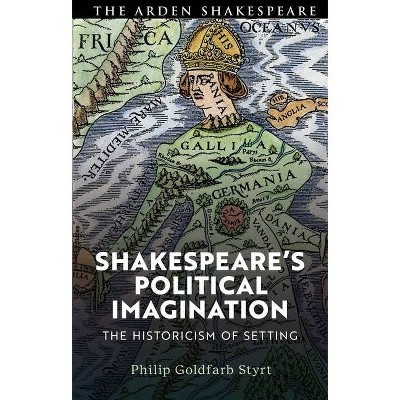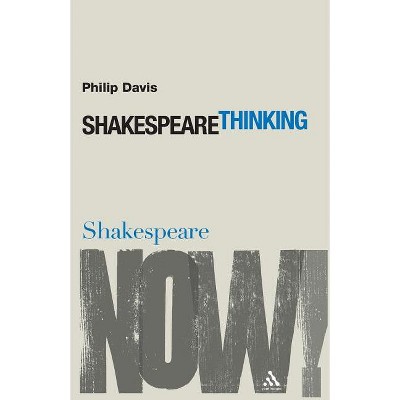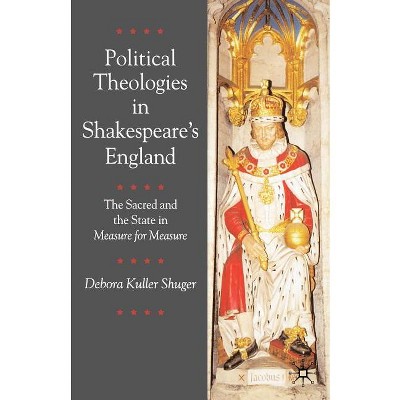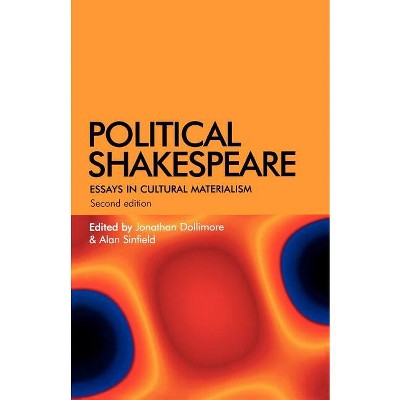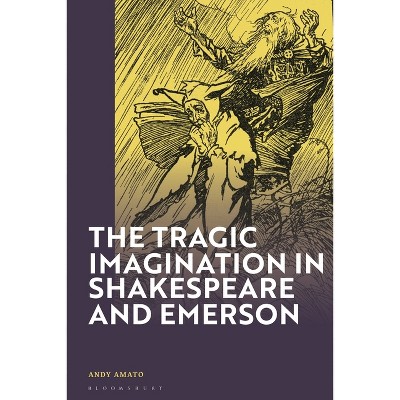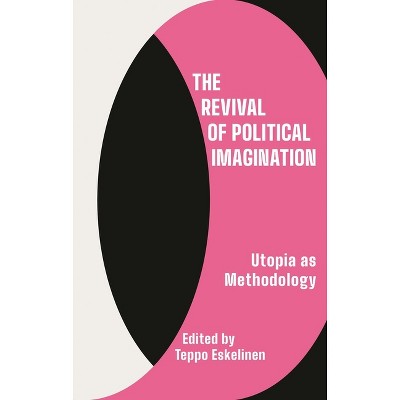Shakespeare's Political Imagination - by Philip Goldfarb Styrt (Paperback)

$39.99 when purchased online
Target Online store #3991
About this item
Highlights
- Shakespeare's Political Imaginationargues that to better understand Shakespeare's plays it is essential to look at the historicism of setting: how the places and societies depicted in the plays were understood in the period when they were written.
- About the Author: Philip Goldfarb Styrt is Assistant Professor of English at St. Ambrose University, USA.
- 232 Pages
- Literary Criticism, Shakespeare
Description
Book Synopsis
Shakespeare's Political Imaginationargues that to better understand Shakespeare's plays it is essential to look at the historicism of setting: how the places and societies depicted in the plays were understood in the period when they were written. This book offers us new readings of neglected critical moments in key plays, such as Malcolm's final speech in Macbethand the Duke's inaction in The Merchant of Venice, by investigating early modern views about each setting and demonstrating how the plays navigate between those contemporary perspectives. Divided into three parts, this book explores Shakespeare's historicist use of medieval Britain and Scotland in King Johnand Macbeth;ancient Rome in Julius Caesarand Coriolanus; and Renaissance Europe through Venice and Vienna in The Merchant of Venice, Othelloand Measure for Measure.Philip Goldfarb Styrt argues that settings are a powerful component in Shakespeare's worlds that not only function as physical locations, but are a mechanism through which he communicates the political and social orders of the plays. Reading the plays in light of these social and political contexts reveals Shakespeare's dramatic method: how he used competing cultural narratives about other cultures to situate the action of his plays. These fresh insights encourage us to move away from overly localized or universalized readings of the plays and re-discover hidden moments and meanings that have long been obscured.
Review Quotes
"Styrt resists critical tendencies either to avoid the politics in the plays by taking a transhistorical or topical approach. Instead, Styrt encourages us to think contextually about the internal politics of the plays, rather than those derived from them and applied topically to Shakespeare's own place and time." --The Year's Work in English Studies
About the Author
Philip Goldfarb Styrt is Assistant Professor of English at St. Ambrose University, USA. His work focuses on the interaction between history, politics and drama, and has been published in Shakespeare Quarterly, SEL: Studies in English Literature 1500-1900 and Modern Drama among others.Dimensions (Overall): 8.5 Inches (H) x 5.5 Inches (W) x .49 Inches (D)
Weight: .6 Pounds
Suggested Age: 22 Years and Up
Number of Pages: 232
Genre: Literary Criticism
Sub-Genre: Shakespeare
Publisher: Bloomsbury Publishing PLC
Format: Paperback
Author: Philip Goldfarb Styrt
Language: English
Street Date: June 29, 2023
TCIN: 1002215746
UPC: 9781350277878
Item Number (DPCI): 247-31-6631
Origin: Made in the USA or Imported
If the item details above aren’t accurate or complete, we want to know about it.
Shipping details
Estimated ship dimensions: 0.49 inches length x 5.5 inches width x 8.5 inches height
Estimated ship weight: 0.6 pounds
We regret that this item cannot be shipped to PO Boxes.
This item cannot be shipped to the following locations: American Samoa (see also separate entry under AS), Guam (see also separate entry under GU), Northern Mariana Islands, Puerto Rico (see also separate entry under PR), United States Minor Outlying Islands, Virgin Islands, U.S., APO/FPO
Return details
This item can be returned to any Target store or Target.com.
This item must be returned within 90 days of the date it was purchased in store, shipped, delivered by a Shipt shopper, or made ready for pickup.
See the return policy for complete information.






